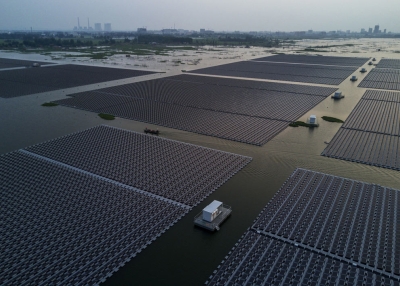An Asia Society Policy Institute Report
The global climate change challenge requires major reductions in greenhouse gas (GHG) emissions around the world, and few regions are as critical to this task as Northeast Asia. China, Japan, and the Republic of Korea now account for more than a quarter of global GHG emissions, and they are each using carbon markets to reduce their emissions footprints.
Carbon markets cap how much a company or organization can emit, and compel them to buy “allowances” for emitting beyond their limit. They create tradeable units, with emitters that fall below their limits selling permits to those that exceed them. When effective, carbon markets provide flexible options for lowering emissions at reduced costs.
Roadmap to a Northeast Asian Carbon Market argues that by linking their markets, China, Japan, and Korea could make them more economically, environmentally, and strategically valuable.
Economically, linking can reduce costs by expanding the number of market participants in ways that make the markets more efficient and less volatile. Environmentally, linkage can take away incentives for companies to move their emitting activities from one area to another with weaker regulations. By reducing costs, linkage can also lead these countries to set more ambitious climate change targets. Strategically, linking markets could provide a confidence-building measure for wider Northeast Asian relationships and demonstrate global climate change leadership.
Linking will not be easy, and the differences in the economies of these countries and in the carbon markets they are developing present a range of challenges. This report, authored by ASPI Director of Asian Sustainability Dr. Jackson Ewing with insights from regional and international experts and practitioners, offers recommendations for how these challenges can be overcome, and contends that the time is right to build regional carbon market collaboration.
This report feeds into the wider ASPI initiative, Toward a Northeast Asian Carbon Market. ASPI is committed to working with regional and international stakeholders as Northeast Asian markets evolve, and convening dialogues that are frequent, multi-stakeholder, and at both senior policy and technical levels.
Executive Summary
English: Download print-friendly version (PDF, 91 KB)
Chinese: Download print-friendly version (PDF, 558 KB)
Full Report
English: Download print-friendly version (PDF, 959 KB)
Chinese: Download print-friendly version (PDF, 1.7 MB)
About the Author

Dr. Jackson Ewing is the Director of Asian Sustainability at the Asia Society Policy Institute (ASPI) in New York, where he leads projects on environmental cooperation, responsible resource development, and international climate change policy. Prior to joining ASPI, he led the Environment, Climate Change, and Food Security Program at Singapore’s S. Rajaratnam School of International Studies (RSIS). He has worked throughout Asia with actors in government, the private sector, civil society, and international organizations, and has carried out policy projects addressing transboundary environmental stresses, unsustainable food value chains, and the nexus of systemic water, food, and energy challenges. Dr. Ewing publishes widely through a range of mediums and is a regular contributor to radio, television, and print media. He holds a doctorate in environmental security and a master’s degree in international relations from Bond University, a bachelor’s degree in political science from the College of Charleston, and an ongoing fellowship at RSIS.

